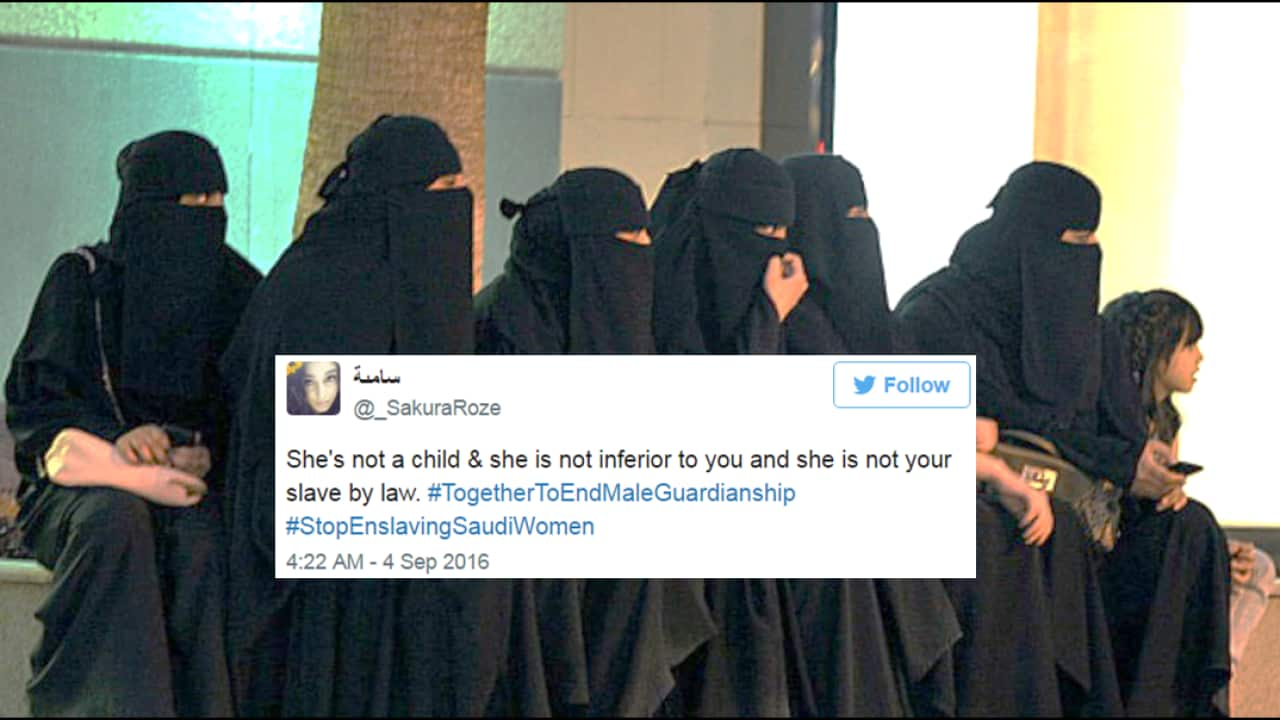Last weekend the New York Times an eye-opening report summarising the opinions of nearly 6,000 women in Saudi Arabia who answered the paper’s call to describe their day-to-day lives in a country with one of the world’s worst records on women’s rights.
The kingdom’s ruling monarchy recently granted women the right to vote and stand in local elections, but “male guardianship laws” mean that women still require permission from a male relative to make even the most basic life decisions.
Permission is required to study, marry, travel and even to go to the doctor.
“Every time I want to travel, I have to tell my teenage son to allow me,” one 42-year-old woman told the paper.
“I got into an accident once in a taxi, and the ambulance refused to take me to the hospital until my male guardian arrived. I had lost a lot of blood. If he didn’t arrive that minute, I would’ve been dead by now,” a 19-year-old from Riyadh said.
The New York Times put its call out in both English and Arabic and says it was overwhelmed by the response.
“Saudi Arabia has one of the world’s highest rates of Twitter use, and our posts rocketed around,” the paper said.
Recommended:

Saudi petition seeks 'full' rights for women
Women told of the emotional toll the guardianship laws place on them.
“It’s like I’m in handcuffs, and the society, the law, the people [are] against us. That’s why most women choose to marry in their early 20s as a way to escape, and guess what? The man she marries is no different from her brother or father,” one 19-year-old said.
“It’s suffocating. I’d rather kill myself than live with it. I hold on to the smallest hope I have that someday this will change,” said another.
Guardians can be fathers, husbands, brothers – or even a woman’s own son. A husband would retain guardianship even during divorce proceedings.
Even if a mother is granted physical custody of her children after separation, the father retains legal custody and ultimate control over where they live of travel.
Supporters of the laws say it is rooted in Saudi culture, custom and Islamic scripture - though many Muslims have argued that guardianship laws as  Human rights organisations say guardianship laws give men the opportunity to financially extort or physically abuse the women they control.
Human rights organisations say guardianship laws give men the opportunity to financially extort or physically abuse the women they control.

Strict customary laws allow for the control of nearly every aspect of a woman's life in Saudi Arabia. Source: X01740
“My sister went to a bookstore without taking permission from her husband, and when she returned, he beat her up without restraint,” a 28-year old told the New York Times.
Another woman says she had fled the guardianship of her father, seeking protection with a human rights organisation.
When she went to the police to lodge a complaint, the 23-year-old was jailed for fleeing home, she told the paper.
It’s likely she would have required her father’s permission to be released.
“If a guardian refuses to release a woman from prison, authorities may transfer her to a state shelter or arrange a marriage for her. Her new husband becomes her new guardian,” Human Rights Watch says.
“Saudi Arabia’s male guardianship system remains the most significant impediment to women’s rights in the country despite limited reforms over the last decade,” the organisation says.
Recommended:

End child stonings, UN tells Saudi Arabia
Despite that, some women who spoke to the New York Times appeared to support the system that held them prisoner.
“I need my father’s or my husband’s permission to travel outside the kingdom, and this is okay for me, as I need them to know where I am, especially with the current status of events in the world,” a 56-year-old doctor from Riyadh told the paper.
“I have lived for a while in the West, and I found that the life of a woman is very difficult, for she has to bear heavy burdens that only a man can undertake. Whereas in our country, the man provides all forms of comfort for the woman,” a 30-year-old woman said.
Others said they needed their guardians for advice, guidance and protection.
Some women praised their guardians, saying they were enlightened or open minded, but said they still bristled when asked for permission papers.
“It just feels wrong that a middle-aged woman gets questioned every time to travel, while teenage boys are allowed to move in and out without question,” a 50-year-old Saudi woman based in London said.
Women’s rights activists both within Saudi Arabia and internationally continue to campaign against the law, with thousands of Saudi women recently and sending messages to the Saudi King’s office.
Recommended:

Two Yazidi women win EU human rights prize



